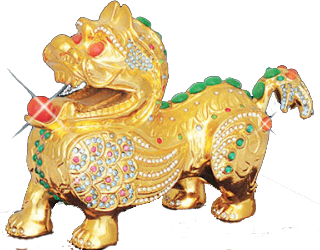Condition Treated / Pain Conditions
Allergies
An allergy is a hypersensitivity disorder of the immune system. Allergic reactions occur when a person's immune system reacts to normally harmless substances in the environment. A substance that causes a reaction is called an allergen. These reactions are acquired, predictable, and rapid. Allergy is one of four forms of hypersensitivity and is formally called type I (or immediate) hypersensitivity. Allergic reactions are distinctive because of excessive activation of certain white blood cells called mast cells and basophils by a type of antibody called Immunoglobulin E (IgE). This reaction results in an inflamatory response which can range from uncomfortable to dangerous.
Mild allergies like hay fever are very common in the human population and cause symptoms such as red eyes, itchiness, and runny nose, eczema,hives, or an asthma attack. Allergies can play a major role in conditions such as asthma. In some people, severe allergies to environmental or dietary allergens or to medication may result in life-threatening reactions called anaphylaxis. Food allergies, and reactions to the venom of stinging insectssuch as wasps and bees are often associated with these severe reactions.
Allergies are overreactions of the immune system to things in the environment, such as dust, pollen, animal dander, and foods. When an allergic person’s immune system is triggered by an allergen, it causes some degree of inflammation. The severity of an allergic reaction can take the form of simple itching eyes, sneezing, and runny nose (rhinitis); skin reactions such as eczema or hives; and even life-threatening constriction of the airways.
Increasing numbers of people suffer from allergies. The prevalence of allergic rhinitis, for example, is now estimated to be between 10 and 20% of the population in developed countries. Allergic rhinitis and mild allergy symptoms are usually treated with antihistamine or decongestant medicines and sometimes with steroid medicines, but these often cause unwanted and even harmful side effects.
Traditional Chinese medicine (TCM) includes Chinese herbal medicine, tai chi (movement and meditation practice), and acupuncture. TCM has been used to treat allergies for hundreds of years, and the results of several studies suggest that TCM therapies can be helpful for allergic conditions such as asthma, eczema, and food allergies. Both acupuncture and Chinese herbal medicine have been shown to help people with allergic rhinitis.
Traditional Chinese medicine often views allergic rhinitis as related to Wind, noting that symptoms come and go rapidly, cause congestion, and make the person want to avoid windy situations. This Wind often coexists with a deficiency of the Protective or Wei Qi. The nearest thing we associate with the Wei Qi in the west is resistance to colds and other respiratory infections. People with Wei Qi deficiency catch colds easily, and allergy symptoms may be particularly bad in the spring or fall (or Twin Peaks in the summer), seasons which are generally windy.
The acupuncturist also looks for constitutional or more deeply-rooted signs in each person who presents with allergic symptoms. The principle here is treating the whole person. Often people with chronic allergies show signs of Spleen or Kidney Deficiency as well as Lung signs according to TCM. The goal of the acupuncturist is to develop a plan which addresses the person's acute symptoms and provides relief, while addressing the underlying immune system imbalance which is thought to be at the root of the person's allergy problems. Treatments often include dietary modification, the use of specifically chosen herbal formulas, and acupuncture.
In the current study, 52 people with allergic rhinitis were randomly assigned to receive either weekly acupuncture sessions and Chinese herbal medicine three times per day or placebo (sham acupuncture, in which the needles are placed at nonacupuncture points, and nonspecific herbs) for six weeks. The people receiving treatment were given two herbal medicine formulas: one was a basic formula for allergies and the other was created for each individual, based on the person’s TCM diagnosis. All herbs were used in the form of tea made from dried herbs. Participants answered questionnaires about their allergy symptoms at the beginning of the study and at the end of each week; a daily symptom diary was also used to monitor symptoms.
At the end of the study, allergy severity in people receiving treatment was significantly lower than in those receiving placebo. Nearly 85% of those in the TCM group improved while improvement was noted in only 40% of those getting placebo. Furthermore, twice as many in the TCM group as in the placebo group had no symptoms or mild symptoms at the end of the study.
The results of this study suggest that a TCM protocol involving both acupuncture and Chinese herbal medicine can benefit people with allergic rhinitis. In a previous study, acupuncture was found to be helpful, but herbal medicine did not increase its efficacy more than placebo. More research is needed to establish the importance of each aspect of TCM in the treatment of allergic rhinitis.
Pain Care Acupuncture Clinic is your local acupuncture office in Torrance, CA . specializing in treating injuries and chronic pain. Dr. Ming Chen and Dr. Lu Yang, Both acupuncturists who also the oriental medical doctor ( O.M.D. ) can pinpoint the cause of the injury and suggest the best treatment methods for you. You need our doctor to listen to the whole story and examine you, so that you can get started treating on your injuries or chronic pain and get you on the track toward recovery.
Call now for a free health consultation !
Visit out Pain Care Acupuncture Clinic in;
21320 Howthorne Blvd., Suite 203 Torrance, CA 90503
quick link
Condition Treated
- Pain Conditions
- Respiratory System Conditions
- Digestive System Conditions
- Circulatory System Conditions
- Blood System Conditions
- Endocrine System Conditions
- Nervous System Conditions
- Urogenital System Conditions
- Gynecological Conditions
- Tumour Conditions
- Emotional/Behaviour Conditions
- Sensor Organ Conditions
- Skin Conditions
- Other Conditions
 La acupuncture
La acupuncture













